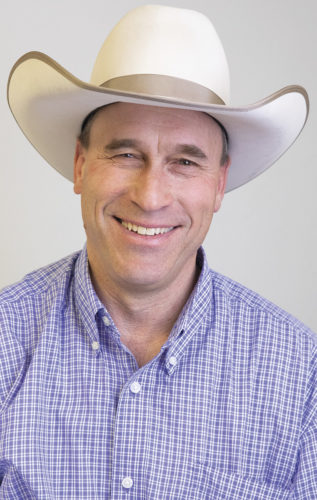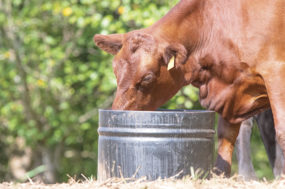It was another one of those nights. I slowly brought myself back to reality from one of those crazy dreams that makes no sense, opened one eye and glanced up at the old digital clock radio on the dresser next to the bed. Through the blur in my eyes and the fog in my brain, I ascertained that it was 1:38 a.m. I rolled over, turning my face away from the clock with the intent of reentering a peaceful winter slumber. But, as I feared, and right in line with what was becoming an all-too-familiar routine, the sleep I longed for and needed once again eluded me. The cause of my newfound insomnia was more than just the simple effects of age and regularly scheduled nightly visits to the bathroom. Unfortunately, it was much more.
The byproducts of family and living and, frankly, just being a human with a pulse are not always pleasant. That fact is inescapable to every soul who’s ever taken a breath, and I was learning to deal with things more worrisome than calving heifers in a blizzard or shipping fats on a frigid morning.
Not coincidentally, the realization that I have company in my times of heartache has brought me solace in recent weeks. Within a period of just a couple of weeks, we learned that both my youngest daughter’s husband and my youngest son’s wife had been diagnosed with unrelated forms of rare cancer. It was my son-in-law’s second bout with the devil disease in five years. My 27-year-old daughter-in-law, who was expecting her first child, had undergone an emergency C-section 32 weeks into her pregnancy in order to expedite chemotherapy treatments for a rare form of liver cancer. Although my new grandson was thriving, as much as that’s possible for a 3-pound, 12-ounce baby to do in a hospital’s neonatal intensive care unit, the gravity of reality weighed heavy on all of us.
In my more-awake state, now, rather than lying back down in bed to count the minutes as they slowly crept by and battle with the twin goblins of annoyance and dread that often accompany a sleepless night, I sank into the chair in the living room and picked up my phone. The algorithm that mysteriously figures out what my interests are somehow directed me to an article about some Colorado ranchers’ battle with several groups of nonsensical environmental extremists. I took several minutes to read the article and then made what I thought was an intellectually stimulating post on Facebook, complete with a link to the article. I didn’t figure many people would actually read the article, but it felt good to focus my mind on something other than my personal travails.
With any desire to sleep now completely banished from my previously groggy psyche, I clicked on the link to one of my favorite newspapers, fully intent on devouring the sports section before sunrise. I casually perused the Big 12 and SEC standings and glanced at an article about some NFL rookies of the current season. I read with wonder an article about the ranching and bronc riding Wright family from tiny Milford, Utah, and how they’ve built a rodeo dynasty around their rare talents. But despite my usually hyperactive interest in the sports page, my eye was drawn to an article completely unrelated to sports.
A quick appraisal told me the article was a long one, perhaps a 20-minute read. I was wide awake, so I dove in. The article detailed a story that had unfolded a few years earlier, one I’d nearly forgotten about but that had dominated the national headlines as it happened. It told of an off-duty police officer in Dallas who had accidentally shot and killed an innocent man whom she had mistakenly identified as an intruder in what she thought was her apartment one late night. The officer was eventually convicted of murder in a racially charged, high-profile trial. The story I was reading detailed the struggles of the victim’s brother in dealing with a tragedy so intimate and deeply personal that solace was, for the most part, unattainable. Ultimately, though he struggles with his grief to this day, the only relief he could find was through nearly incomprehensible forgiveness, which was on full display in front of the entire world as he embraced the convicted killer of his brother in a packed courtroom during her sentencing hearing.
As I read of this once angry young man and his excruciating emotional pain and subsequent healing, I was brought, in a way, full circle back to myself and my family’s present struggles. I became less focused on my own pain and more in tune with those good souls around me who wanted to help. It has been hard for me to accept the gracious charity, in its many forms, of dear friends and even strangers who have reached out in the spirit of selfless giving, wanting to help ease our burdens in some way. The realization that people honestly care is a healing balm in itself.
I have a strong belief that every one of us is inherently good. I think that’s how our creator made us. But, just as Stetson Wright would probably be a nondescript ranch cowboy on his grandpa’s little ranch in southern Utah without incredible effort put forth on his part to develop his talents, the goodness in each of us will remain merely dormant potential without some sort of resolve to do something with it.
In the dark early hours of that cold winter morning, it struck me with a powerful clarity that goodness can always prevail over grief and sadness, not because it’s inevitable, but because good people are willing to work and sacrifice to make it happen.







